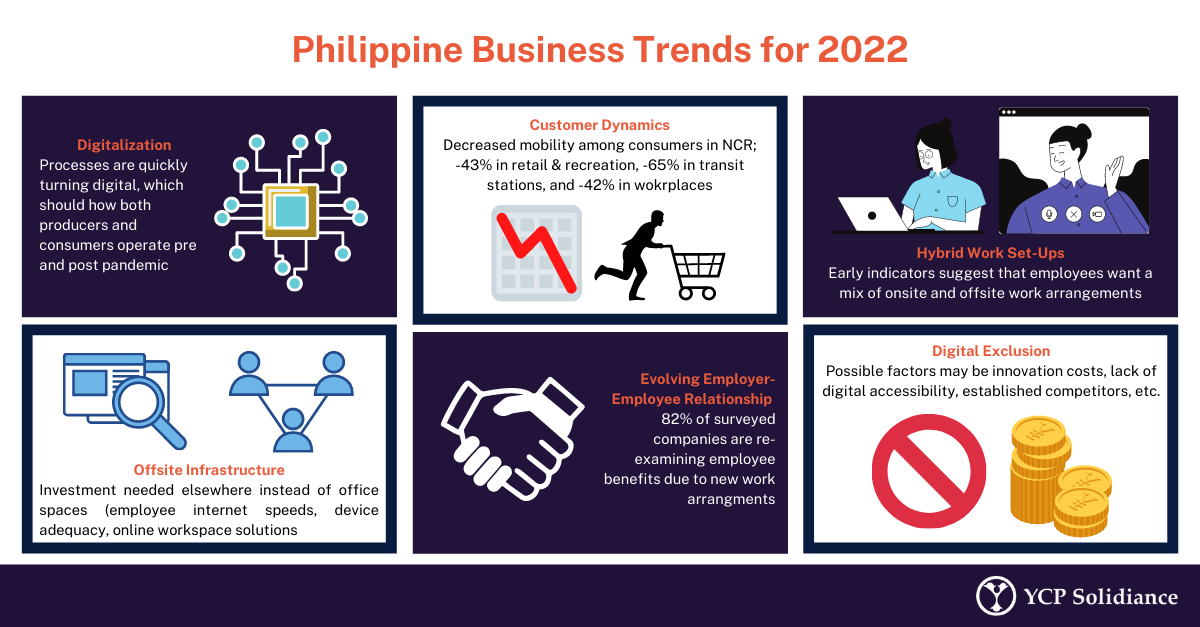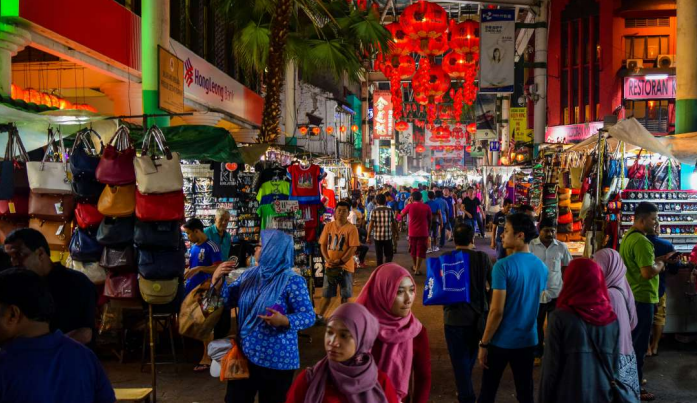Last September 23, 2021, Globe Business, the enterprise and SME arm of PH telco company Globe, held Breaking the Digital Divide: Enhancing and Sustaining Enterprise Workflows Beyond the Pandemic, a seminar that featured a panel of experts discussing the current state of the Philippines’ hospitality and professional services industries.

Considering the rise of the Delta Variant and the Philippines’ transition into a new alert level-based lockdown system, the future of hospitality and professional services may depend highly on specific market trends, and the different players in these industries must be forward-looking and ready to adapt.
During her keynote presentation, YCP Solidiance Partner Anna Rellama covered these emerging business trends that companies in the Philippines should look out for with 2022 quickly nearing:
- Digitalization: Several industries have digitalized, which can be seen through businesses in sectors like financial technology, e-commerce, or even professional services. As a result, traditional processes and practices have undoubtedly evolved, from restaurant dine-in to food delivery, physical signatures to electronic signatures, medical consultations to telemedicine, etc.
- Customer Dynamics: Data from a 2021 mobility report released by Google suggests that consumer behavior within the PH’s National Capital Region will likely continue to be negatively impacted due to the pandemic. Additionally, in the context of the Philippines’ mobility restrictions and rising infection rates, stakeholders will need to pivot according to the predicted lack of movement.
- Hybrid Work Set-ups: Part of the pivot from stakeholders is the emergence of hybrid work set-ups, a term which refers to working from both the office and at home. According to a survey conducted within JLL Philippines, 66% of their 3,300 employees prefer hybrid work arrangements.
- Offsite Infrastructure: While current trends suggest a shift away from traditional working set-ups, which means distancing from concepts like full capacity office spaces, companies will need to invest toward proper infrastructure and tools for its employees (network coverage, internet connectivity speeds, adequate devices, etc.) Doing so will help ensure business productivity.
- Evolving Employer-Employee Relationship: Introduction of new work models will also require businesses to re-examine employer-employee relationships. Terms and conditions of standard contracts may need fine-tuning, and even processes regarding work attendance or health insurance will need further assessment.
- Digital Exclusion: As businesses surge into the trend of digitalizing operations, an important consideration should be given to sustainability and inclusion among all parties. It is entirely possible that an accessibility gap of sorts may arise in the future, especially when consumers may not have the technological means to avail of digital services.

While many of these trends were presented with hospitality and professional services in mind, it is important to highlight that these insights are indicative of how many other industries in the Philippines are handling the fallout of the pandemic. Taking note of these trends will surely benefit businesses’ operations, but more importantly, consumers who are in continuous search of certain goods and services.
For more insight on emerging and key business trends in the Philippines, subscribe to our newsletter here.







